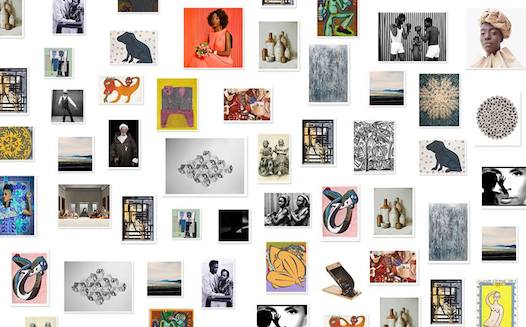Art for everyman, a startup’s democratization of the art world


Any kind of art you like. (Image via Pavilion 33)
No longer the playground of the elite, art galleries and auction houses are becoming more democratized, all thanks to the internet.
Add to that the spread of online payment systems in the Arab world and you have a sector of ecommerce dedicated to selling art. Online art galleries like Saatchi Art, Bitcoin-exclusive gallery Cointemporary and New Blood Art gallery for emerging artists are a few examples.
In this context, the beta version of Pavilion33 was launched in March as a market or platform for art that is available to all, with a particular focus on emerging markets like MENA.
After her graduation from Flat6Labs in June, Wamda had a chat with Pavilion33’s cofounder and CEO Valerie Konde.
After being raised in Senegal and living in various foreign countries, the art lover came to Dubai four years ago. “While looking for a piece for a friend of mine, I didn’t know where to start looking,” Konde told Wamda. “Dealing with art galleries was tough because they want to make money first. They care about selling a $15,000 piece instead of wasting their time on less expensive pieces.”

Valerie
Konde pitches her concept as part of Flat6Labs’ first graduation
batch. (Images via Pamela Kesrouani)
Bartering for works of art
In their bid to make art accessible to all, Pavilion33 offers three kinds of services: purchasing, renting and trading.
“These services are interconnected,” explains Konde. “If you like a certain piece but you don’t feel like buying it, we give you a chance to rent it. Then, if you love it, you can buy it, and if not, then we can send you another piece.”
Equally, if you’re bored with a piece that you already own, and perhaps it doesn’t fall into the required categories of auction houses in the region, like Sotheby’s or Christies, you can take it to the startup to be rented out, or traded for another piece.
Because of its more competitive prices, which can range from $1,000 to $2,000, the ecommerce platform has started attracting art lovers.
In fact, Konde prefers that “paintings do not exceed $10,000, which is the average amount of online payment exchange”. She said previous experience has taught her most people don’t like to spend so much money in online transactions.
Konde plans to generate profit from a commission of 15 to 25 percent on the art pieces sold. In the meantime, she is relying on her personal funds, as well the investment received from Flat6Labs.
Early signs of success
Despite being in beta mode, Pavilion33 has had deals made with customers in the US and the UK, as well as partnerships with various galleries across the globe, including Lebanon, Tunisia, to Ivory Coast, Mozambique and Paris. “We want to build solid relationships with galleries all over the world so they can become our ambassadors,” said Konde.
To bring these ambitions to life, Konde wanted to surround herself with a strong team that will allow her to offer various services concerning online galleries. Her cofounder, museum director Olivier Varenne, brings more than 15 years of experience in the art dealing domain. Her other cofounder, Anne-Helene Decaux, deals with the practical matters of acquiring art works and making deals with art curators from around the world. She also has a group of experts who have helped during her time at Flat6Labs.

Buying,
renting and trading art pieces.
Delivery, payments and other obstacles
One of the main logistical challenges in the team’s entrepreneurial journey was delivering and securing the paintings.
“The delivering [of paintings] was the main challenge, especially when it came to renting them from the UAE, because you can’t send paintings to any country [...] because of the high prices.”
As such they are looking to push their focus more on companies instead of individuals.
Another measure taken to tighten up on money was to eliminate cash-on-delivery, not surprising given the amounts of money involved. “And since our more important client base is abroad, we’ve figured out a way to have zero bounce rates (return rates) through cooperating with a British company that handles operations and wiring money to [UAE],” adds Konde.
Despite the rising number of online galleries, Konde doesn’t consider galleries like Emergeast or Rise Art to be competitors, as they offer different services and a different business model altogether.
The future plans for Pavilion33? To become a peer-to-peer marketplace that allows direct exchange between customers and art galleries, while the team gets busy with evaluating, certifying and analyzing works of art. Until this happens though, Konde and her partners have their sights set on making their platform the Airbnb of of art.


